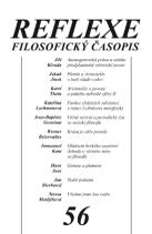Mircea Eliade: homo religiosus
Eliade’s theory of religion is based on the polarity of two values: the Sacred and the Profane. In his numerous writings, Eliade describes how human experience of the Sacred changed and developed over time and delineates two basic types of religiosity, archaic and modern. Archaic religiosity derives all value from myth, which had taken place in illo tempore. Modern religiosity is future-oriented and teleological. In Eliade’s view,Western culture, shaped by Jewish and Christian spirituality, entered a stage where it desperately needs to rediscover its archaic roots, much better preserved in contemporary Eastern cultures. Eliade sees his role as a historian of religion (and a novelist) in assisting to prepare the way for a „new Renaissance“. He believes that the current globalizing trends will bring about a cultural „planetization“ and he expects a creative worldwide encounter of Western culture with other cultures.
Backlinks: Reflexe 26
